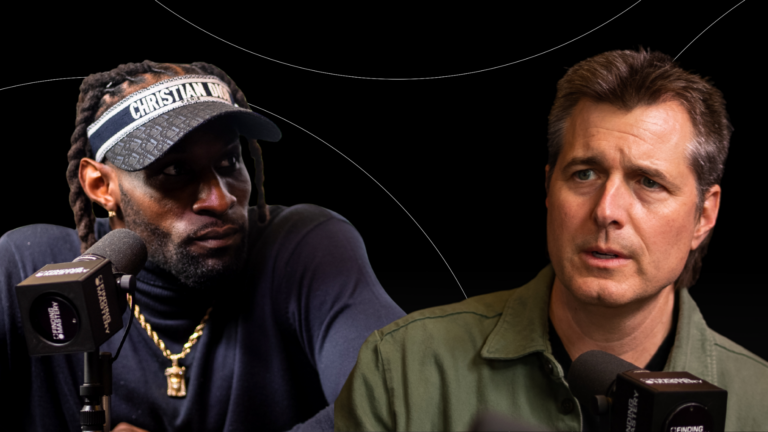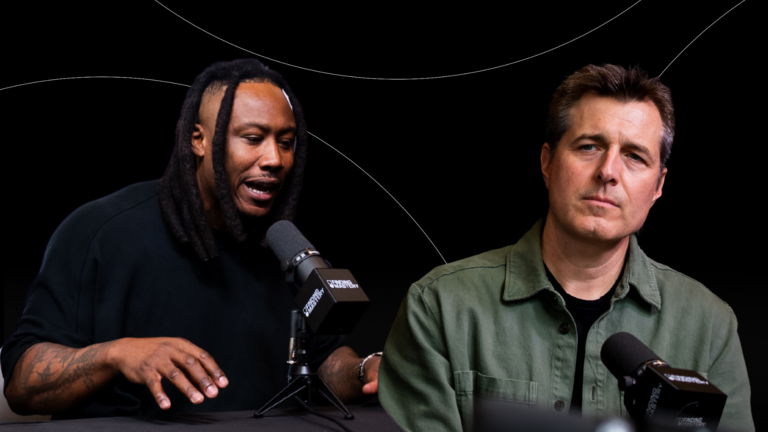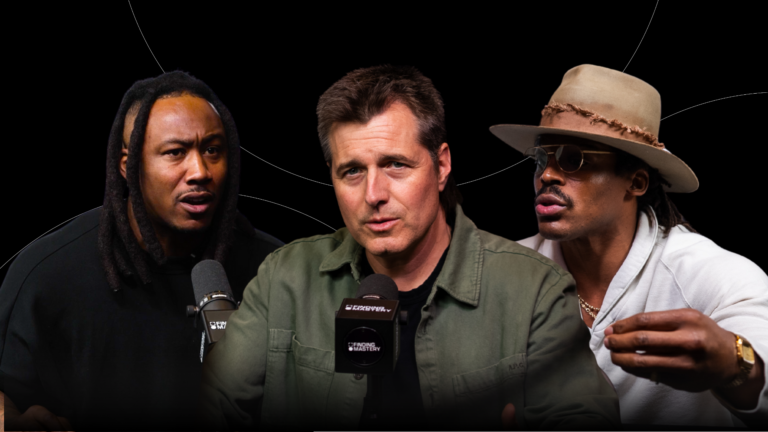This week’s conversation is with Dr. Andrew Weil, an internationally recognized expert on medicinal plants, alternative medicine, and the reform of medical education.
He is the founder and Director of the University of Arizona Center for Integrative Medicine, where he also holds the Lovell-Jones Endowed Chair in Integrative Rheumatology and is Clinical Professor of Medicine and Professor of Public Health.
Andrew is the founder and Chairman of the Weil Foundation, and the founder and co-Chairman of Healthy Lifestyle Brands.
He is also a founder of the growing group of True Food Kitchen restaurants and co-founder of Matcha Kari.
Andrew is an absolute pioneer in the field…
In this conversation, Andrew shares why he’s such an avid supporter of integrative health and his philosophy on healthy aging.
“The body has incredible potential to heal itself. The focus should be on prevention not on treatment. It’s much easier to prevent problems than to deal with them once they’ve developed.”
In This Episode:
What is integrative medicine?
Integrative medicine really looks at the whole person, the mind-body connection and the spiritual aspects of human life. We strongly believe that the human body has innate healing potential, and that’s where good medicine starts. We are willing to use all methods of proven value, that aren’t going to hurt people, to try to promote health and wellness.
What did his colleagues think of him?
In the 1970s, 1980s, none of my medical colleagues paid any attention to me at all. That only changed in the late, really early 1990s, and it was when the economics of healthcare began to go south. So, one lesson I draw from that is that no amount of ideological argument moves anything. It’s only when the pocket books of institutions gets squeezed that they begin to be opened to new ways of thinking.
His issue with the current U.S. healthcare system
Medicine has become way too expensive. It’s too dependent on expensive technology, and it does a very poor job at managing most of the lifestyle related diseases that are epidemic in our society today. We spend more per capita on healthcare than any other nation in the world by a long shot, and we have poor health outcomes than any other developed countries. So, something’s really wrong with that picture.
Health prevention over disease management
The whole healthcare industry is focused on disease management not health promotion and prevention because they don’t pay. The diseases we’re trying to manage, as I said, are mostly lifestyle related diseases that could have been avoided if people made better choices earlier in life about how to eat, and how to be physically active, how to manage stress, and so forth, but we don’t do a very good job at that.
What doctors should be doing
I always felt that the main business of doctors is to keep people well, and to teach them how to live in order not to get sick in the first place. I learned nothing about that in medical school. I hardly ever heard the term healing and learn nothing about health. It was all about disease and how to manage it.
The powers working against those who want to eat healthy
There are very powerful vested interest that don’t want anything to change and that worked against us. For example, if you just look at food, people eat what’s cheap and what’s available. We’ve made the unhealthiest food cheapest and most available. One way we do that is through federal subsidies of commodity crops. We don’t subsidize fruits and vegetables, which are out of reach of many poor people in our society. That’s just one example, but wherever you look, there are people who are benefiting from the system as it is now and don’t want anything to change.
What led him to integrative medicine?
When I finished my medical training, I was very disillusioned, because as I said, I had learned nothing about health, and how to keep people well. Also, the methods that I learned I saw do much too much harm, especially things like adverse drug reactions. So, that seem to me not, I didn’t want to practice, but I had learned, but I wanted to learn about health and healing, and I set out on my own. I traveled a lot around the world. I’ve met with healers. I looked at all sorts of stuff. Then, gradually, I put together my own ideas. People started coming to my doorstep wanting me to treat them as patients. I didn’t want to do that, initially, but I gradually got drawn to doing that.
His path to self-discovery
I often felt that I just didn’t fit in anywhere. I felt like a man from Mars. It seemed to me that I thought differently, I questioned everything I was being taught. I’ve always struck out on my own. I think I followed my own inner light and inner wisdom. In the years, when I had no support at all from the external world, in fact a lot of hostility and criticism, I just kept on going because I knew that I was on the right path, that this was my truth, and I followed it, and it didn’t matter to me if I didn’t get external validation. I was often in situations where I was confronted by people who were very hostile. Sometimes in public forums, on live television, and one thing that I learned, that’s been very useful to me, is that I’m not angry. If I can maintain a non-angry stance, I can say the most outrageous things and it doesn’t provoke reactions. When people come out at me angrily, if I don’t respond in that way, it neutralizes that. So, that’s been a very valuable tool for me.
To experience is to experiment
In most languages derived from Latin, and unfortunately, this is not true in English, the word experiment and the word experience are the same word. I have always used, I experimented with my experience, and I’ve drawn my conclusions from that. It would drive my medical colleagues crazy when I would say, “In my experience.” Then, say, “This is what I believe.” Because it’s not the way you’re supposed to do it. You’re supposed to do controlled experiments in the laboratory, but I think your own experience is one of the best sources of information.
What are his thoughts on anti-aging?
I am absolutely not interested in anti-aging. I think that whole movement is flawed. In my view, aging is a natural process. Everything in the universe ages. Plants age, animals age, mountains age, stars age. If you make your goal anti-aging, you’re putting yourself in a very wrong relationship and that’s not a good place to be. So, I think the goal is to accept aging and to learn how to stay as healthy and well as possible, while managing the changes that occur in your body.
Trying to reverse aging is a waste of time, the goal should be compressing morbidity
I think the first issue is, how can you delay the onset or reduce the risk of what we call age-related diseases? The big ones are cancer, cardiovascular disease, neurodegenerative diseases. It is not natural and normal to get these are you grow old. So, I think it is possible to live long and well and then have a rapid drop off at the end. I think that’s what we’d all like to do, that’s called compression of morbidity. You’re squeezing the time of disability and decline at the end of life into a shorter period as possible. So, I think that trying to stop the aging process or reverse it is a waste of time.
The positive aspects of aging
I have a rare book called Healthy Aging, and in it I had a chapter called the positive aspects of aging. I asked people to think about areas of experience where we place greater value on what’s old and on what’s young. Things like wine, and whisky, cheese, violins, trees, and to think about, what are the aspects of these that get better with age. It has to do with things like depth of experience, wisdom, smoothing out a roughness. It’s interesting to think about that, because there are things that get better if we get older. I know many people that I know who are old telling me that they have greater emotional equilibrium than they did when they were young, the things that will throw them off balance when they were younger now don’t. That’s just an example.
How does he practice mindfulness?
It’s focusing on the present moment, on breathing, body sensations, it’s practice of keeping your mind in the here and now. I don’t think the goal is to be able to sit for long periods of meditation, it’s to be able to carry that state throughout the day in everything that you do. For me, cooking is a meditation. Chopping vegetables, I’m totally focused, I have a visualization of what I want to make, and I manifest that in reality. It’s a very good training, but I think the goal is to be in that state, that totally present state in whatever you do.
Defining mastery
Mastery is when you are able to do something completely right without thinking about it. It’s like you are completely focused and it happens, and you know you’re in the groove, and you know that the result will be just what you want.
The misconception of what it means to eat well
When I talk to people about eating well, and most people think it means giving up everything in your life, and that’s just not true. But many people have never had the experience of eating well-prepared food that looks great, taste great, and happens to be good for you. So, I feel it was my mission to give people that experience.
What he learned from his time in Okinawa, Japan
At that time had the highest concentration of centenarians in the world. Everything’s different there. It’s a tropical, Pacific paradise, the food is amazing, people are physically active throughout life. So, it’s really hard to disentangle all of that, but one thing that was so striking to me was the different value. In traditional Okinawan society, a common cause of sibling fighting is over who is going to get to take care of the aging parents. It’s a little different from what we see in the West. I met with a lot of people in the hundreds, 101, 102, they looked old. They hadn’t used botox, they were stoop, but they had a glow about them that I don’t see here. The whole villages make efforts to include these people, they’re considered living treasures, and they’re included in all community activities, totally different value. In our society, everything, media, products are all targeted to a younger and younger demographic, people in their 20s and 30s. When you get out of that, we lose interest in them. I think that’s one of the most toxic things in our society today.
His issue with over medication
I think that over medication is a tremendous problem in our culture, and I think also that many people are unaware of how ineffective and how dangerous many of these common medications are. I’m not opposed to using medication, but I think when medication is used, it should always be part of a treatment plan that focuses on lifestyle modification, and that you start with the lowest dose of least potent agent. Then, you can work up from there if necessary. Many people that I train are very surprised to learn how so many common conditions can be very effectively managed without medication at all. I think there’s great advantages to that. Not only do you save money, but you really avoid a lot of the risks of these drugs. The other problem is that long term use of many of these medications actually prolongs or intensifies the conditions for which they are meant to be used.



